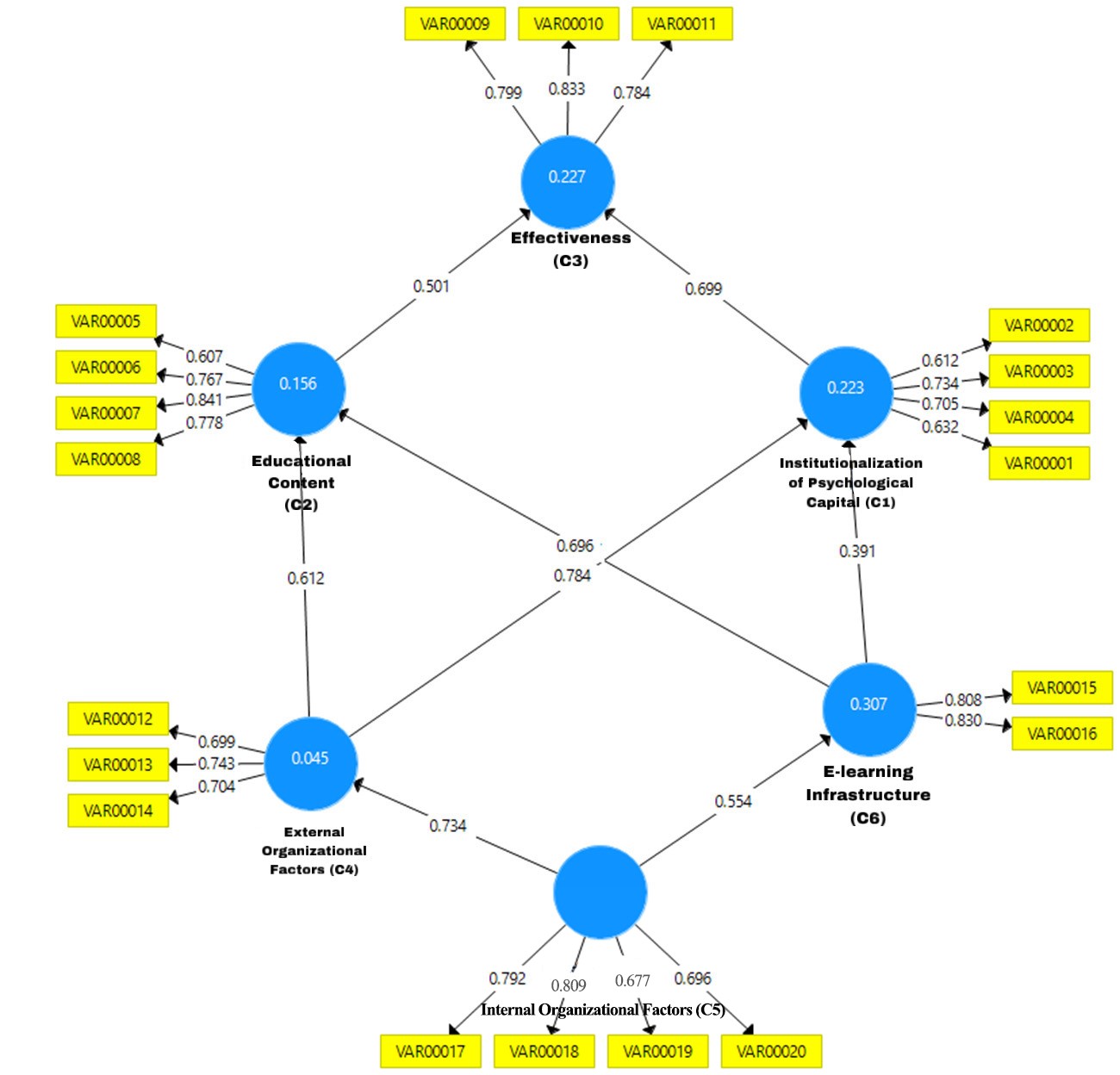Proposing an E-Learning Model with Emphasis on Psychological Capital in Mellat Insurance
Keywords:
Psychological capital, , e-learning systems, employee engagement, organizational infrastructure, Mellat Insurance, structural equation modeling, resilience, innovationAbstract
This study investigates the role of psychological capital (PsyCap) in enhancing the effectiveness of e-learning systems with a focus on organizational infrastructure at Mellat Insurance. The study aims to explore how the key components of PsyCap—self-efficacy, optimism, hope, and resilience—affect employee engagement, adaptability, and learning outcomes in an organizational context, particularly within e-learning frameworks. The research utilized a descriptive-survey method, with a focus on structural equation modeling (SEM) to examine the relationships between psychological capital and organizational factors influencing e-learning systems. A sample of 395 participants from Mellat Insurance was selected using random sampling based on Cochran’s formula. Data were collected through a structured Likert-scale questionnaire validated by experts and tested for reliability using Cronbach's alpha. The data were analyzed using both descriptive and inferential statistical methods, including bootstrapping and SEM, with the aid of SPSS and SmartPLS software. The results confirmed a significant relationship between psychological capital and the effectiveness of e-learning systems. The standardized factor loading for the impact of e-learning infrastructure on external organizational factors was 0.734, with a t-statistic of 3.478, indicating a statistically significant relationship. Moreover, psychological capital was found to mediate the relationship between e-learning adoption and employee adaptability, reducing job-related stress and burnout. The findings align with previous research, highlighting PsyCap's role in fostering innovation, resilience, and engagement in both educational and organizational settings. Psychological capital plays a critical role in improving e-learning systems' effectiveness by enhancing employee engagement, adaptability, and overall organizational performance. Organizations that invest in developing their employees' psychological capital are likely to experience better learning outcomes and reduced stress, leading to improved innovation and productivity.












